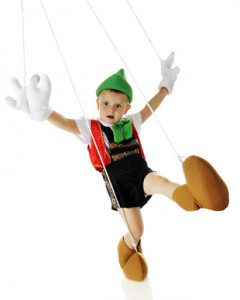Leaving the Home of Helicopter Parents
“Helicopter parenting” is characterized by over-involvement, over-protection, and over-control. It contributes to negative results for children, but does that negative impact linger after they leave home for college? One group of researchers decided to find out. They collected demographic data from 505 college students as well as information about the parenting they received growing up and the level of interpersonal conflict they experience in college. In a second round of surveys, they measured the students’ sense of entitlement and their fear of missing out.
The results of this study indicate that students who were raised under “helicopter parents” had more interpersonal conflict with peers. This seemed to stem from an increased sense of entitlement and fear of missing out, which also increased under the tutelage of “helicopter parents.” In other words, “helicopter parenting” contributed to a child feeling entitled. It also contributes to them developing an overestimation of their abilities, an excessive focus on self, and a potential lack of autonomy. Those qualities contribute to greater interpersonal conflict even after they left the nest of the “helicopter parents.”
So, what can a parent do to avoid the impact of being a “helicopter parent”? Balance the job of parenting to avoid becoming over-protective and over-involved. Strive for balance in your parenting style. For instance,
- Strive for a balance between involvement with your child and encouraging autonomy in your child. It can prove difficult to “let go,” but the benefits of letting our children and teens practice age-appropriate autonomy are tremendous and lifelong. Provide your children the opportunities to behave in autonomous ways.
- Strive for a balance between assisting your child (i.e., making sure they get all their school projects done and are prepared for tests, choosing their clothing or activities) and letting them experience the consequences of their choices. Children learn from the lived consequences of their choices and behaviors. Trust them to manage and learn from those consequences.
- Strive for a balance between jumping in to save your child from struggling relationships and letting them resolve their own conflicts. Step back and trust your child. Ask if they want help and help if they ask. Let them know you’re “in their corner,” but you trust them to be “in the ring” managing the interactions. They will learn so much when you stay “in their corner” and out of the ring, trusting them to manage their relationships. You might even be surprised at how effectively they do so.
- Strive for a balance between praising your child for their achievements and acknowledging their effort and choices. Our children learn best when we acknowledge their efforts. This helps them develop a growth mindset which will benefit them throughout their life. Focus on effort, not end product achievement.
There are many other areas in which a parent strives for balance. In fact, parenting often feels like one big balancing act. But the benefits of striving for that balance far outweigh the consequences of over-involvement and over-protection in our children’s lives.

-0 Comment-